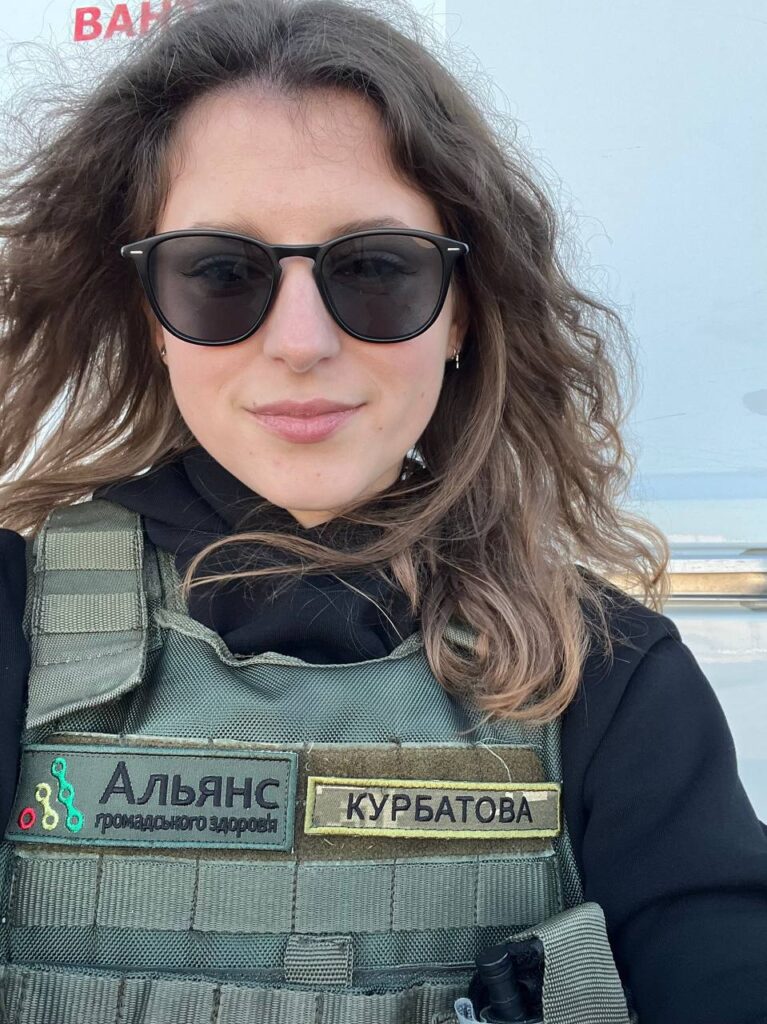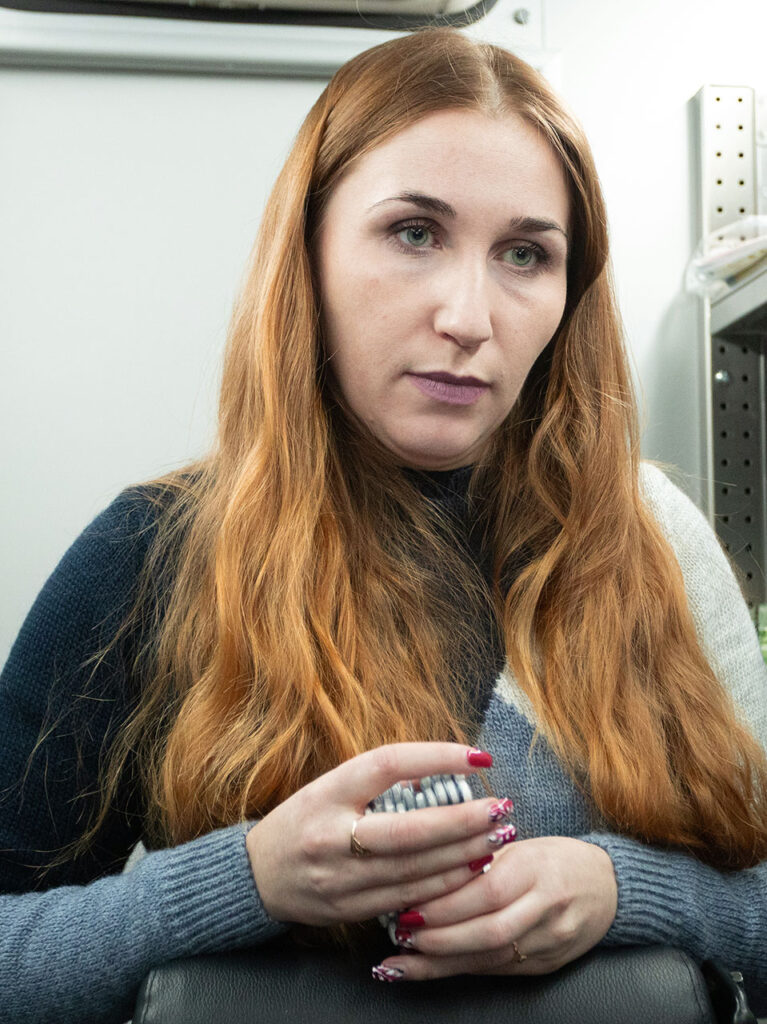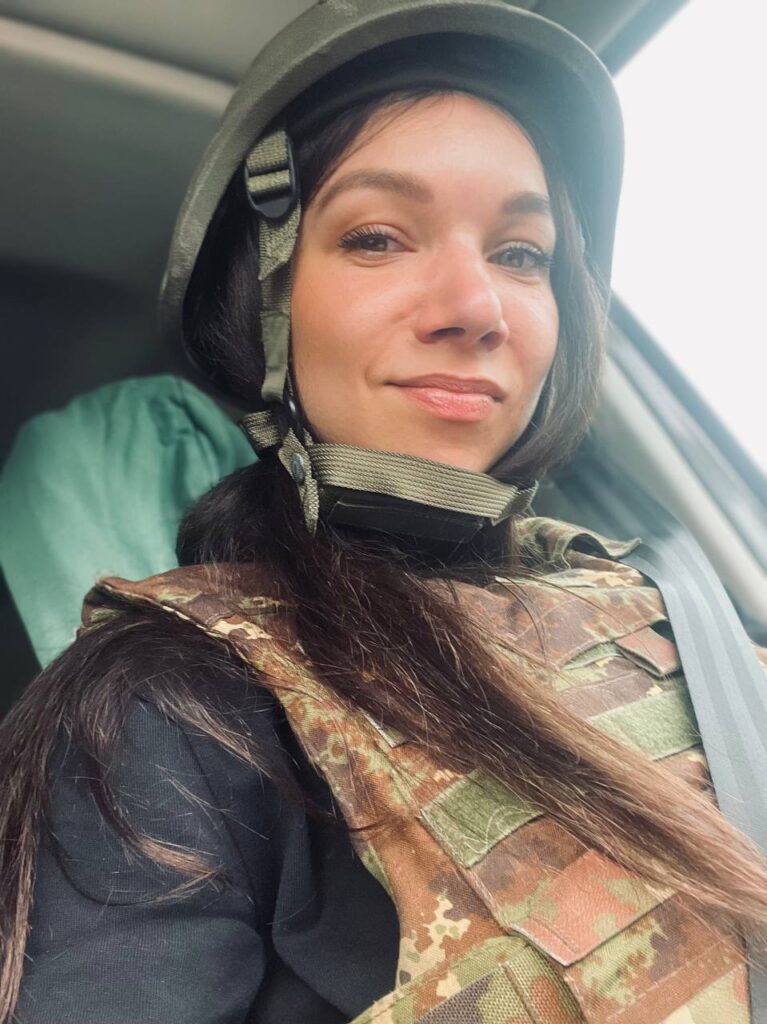Mobile treatment points:
Protecting the health of children in the frontline areas of Ukraine
The Alliance for Public Health is one of the first organizations in Ukraine to have introduced mobile medicine. Well equipped with medical amenities, diagnostic tests, supplies and medicines, the mobile clinics travel to the liberated and frontline areas of Ukraine to provide basic medical services.
A little boy, looking about six years old, is watching the cars passing in front of his eyes with fascination. He is curious to find out how they operate and what they are made of. He himself is a skillful driver as he can ride a tricycle, the focus of everyone’s envy! The boy would like to show off his skills to his best friend, with whom he used to play in his native village every day, but she is gone now, leaving when the war broke out, while he stayed over here with his parents…

The entire Mobile Clinics project team fondly remembers this boy. “His urge to communicate with people was so great that he managed to make friends with every one of us during the half a day he spent with us. He liked playing with our vehicle’s driver and asked us to read him books. He asked if we could take him with us and told us how much he missed his friend,” recalls Valeria Kurbatova, Coordinator of the Kharkiv team from the Mobile Treatment Points (MTP) Project, ICF Alliance for Public Health.
The Alliance for Public Health is one of the first organizations in Ukraine to have introduced mobile medicine. Well equipped with medical amenities, diagnostic tests, supplies and medicines, the mobile clinics travel to the liberated and frontline areas of Ukraine to provide basic medical services. In four regions including Kharkiv, Donetsk, Zaporizhzhia, and Kherson oblasts, they serve more than 160 population centers located in the frontline areas where there are no pharmacies or health care facilities. The mobile units are staffed by doctors and nurses who conduct tests, make diagnoses, and prescribe medicines. Each team runs 2-4 mobile units. In addition to diagnostics and medical care, they deliver home first aid kits and humanitarian aid free of charge.
People who come here for a consultation can get a wide range of services: X-ray examination, professional advice and guidance from a TB doctor, ultrasonic testing, cardiography, rapid tests for myocardial infarction (heart attack), clinical blood analysis, as well as testing for HIV, tuberculosis, hepatitis, and syphilis. This project is critically important because people, especially children, living in these areas are in dire need of help.
Self-treatment due to lack of healthcare resources
Lack of access to medical services drives people to self-medicate. According to the State Service of Ukraine on Medicines and Drugs Control, about 70% of Ukrainians resort to self-treatment, relying on advice from their relatives or friends, as well as information from the Internet. Now, with the war raging on, these figures have dramatically deteriorated, especially in the frontline areas of Ukraine, where health care facilities and pharmacies are not operating or have been destroyed.

“I remember one frontline village and a boy of 10-11 years old. He looked overweight, so his grandmothers brought him to us for a check-up. Having read up on diabetes, they were so worried about their grandson that they both constantly pricked his fingers to check his blood sugar levels. In their opinion, the figure was too high and the child’s life needed to be saved. Once his test results were collected (all of which turned out to be within normal range), we recommended that the boy engage in physical activity,” says Yulia Ovcharova, a general practitioner from Kharkiv, a member of the MTP project team. “Unfortunately, due to the lack of access to medical services, we tend to come across situations that may have disastrous consequences for kids. For example, when grandmothers used their own prescribed medicines on their grandchildren, such as Nitroglycerin, Validol, or Corvalment, which are for adult use only. We constantly explain that adult medicines should not be given to children.”
Children will be children, regardless of the situation or place of residence
“On one of our field trips, we worked at a site located not far from Kharkiv. In that area, there is a church that has sheltered many IDPs who are allowed to stay there for about three months until they find a place to live. Usually, they are young families with children. That day, there were a lot of kids, and we had toys with us. Having learned that they could have their children’s blood tested for free, the parents wanted to take advantage of this opportunity. But the kids were not very happy that they would have to have their fingers pricked. Our lab technician, Roman, came up with the idea to give out the toys to the children who would take the blood test. This was a good enough incentive for them as they could cry but still get their “reward,” – explains Valeria Kurbatova. “It makes no difference where the children live, they have the same fears and needs as those who do not live in the frontline areas. Taking a blood test is no mean feat for a kid. Children are children everywhere and they need attention.”
Team members who work with remote communities say they usually help children of primary school age and teenagers. There are not too many kids left in the frontline areas. They get access to consultations, medical checkups, or basic clinical examinations, or, if so required, they are referred to specialized physicians. The most frequent complaints include anxiety, fear, and nervousness. Mobile clinic staff refer younger patients to a child psychologist or neurologist.
The MTP’s work is of great importance for the frontline regions. It fills a niche that helps people survive when no regular medical care is available. “This project is really special and absolutely unique; it has become one of the most important initiatives over the wartime period. We are extremely proud that there are teams whose members get up at five in the morning and travel to remote parts of Ukraine to do their jobs no matter what. And no matter how tired you are, when you hear words of sincere gratitude from people who need your help, you forget about everything and work even harder!” says Anna Korobchuk, Head of the Mobile Health Team.
The implementation of the Mobile Treatment Points (MTP) Project by the Alliance for Public Health was made possible with the financial support of GIZ, the French Initiative, the Global Fund, and Christian Aid.

The MTP’s work is of great importance for the frontline regions. It fills a niche that helps people survive when no regular medical care is available. “This project is really special and absolutely unique; it has become one of the most important initiatives over the wartime period. We are extremely proud that there are teams whose members get up at five in the morning and travel to remote parts of Ukraine to do their jobs no matter what. And no matter how tired you are, when you hear words of sincere gratitude from people who need your help, you forget about everything and work even harder!” says Anna Korobchuk, Head of the Mobile Health Team.
The implementation of the Mobile Treatment Points (MTP) Project by the Alliance for Public Health was made possible with the financial support of GIZ, the French Initiative, the Global Fund, and Christian Aid.
